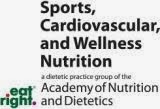Research suggest approximately 50% to 98.6% of university
athletes use some form of supplements in hopes of improving exercise
performance capacity and training adaptations.1,2 It’s even more
staggering to think some athletes are more likely to obtain information from
employees at nutrition stores.3 Registered Dietitian Travis Piattoly
said it best, “Would you go to a pharmacist who was unlicensed for advice on
what drug to take? “Why should it be different for supplements?”


For
registered dietitians, it may be hard to keep up to date on the potential
adverse effects of all the dietary supplements on the market. The good news is
there are several websites dedicated to providing information/potential hazards
of common dietary supplements. One site you may find most beneficial is www.supplement411.org. The site has
several resources available for both RDs and athletes. One resource on the
website is the USADA “High Risk Dietary Supplement List.” (It is required to
fill out some short information before you can access the list.)
The
list contains several brand names and the company who makes the dietary
supplement. Additionally, the list states what the label says and includes
useful comments concerning certain substances. i.e.
·
Product lists prohibited substances on the label.
·
Testing detected the presence of oxilofrine
(methylsynephrine).
·
Product openly lists to contain a prohibited substance.
·
Testing reveals the product contains
N-methylphenethlamine, and DHEA.
·
Product lists a prohibited substance on the
label. Product also advertises itself by stating it is “EPO blood doping
technology.
Unfortunately,
you cannot always trust what supplement companies put in their products. And as
we all know, reading the ingredient list does not always tell you what may or
not be in the product. At the end of the day, athletes are responsible for what
supplements they take. Athletes interested in taking supplements should talk to
a registered dietitian – your anti-doping tests may depend on it.
Gavin Van De Walle is an ISSA Certified Fitness Trainer, a NANBF Natural Competitive bodybuilder, a nutrition columnist for “The Collegian,” and a dietetic student at South Dakota State University. Once Gavin becomes an RD, he will aim to achieve the distinguished Certified Specialist in Sports Dietetics (CSSD) credential.
